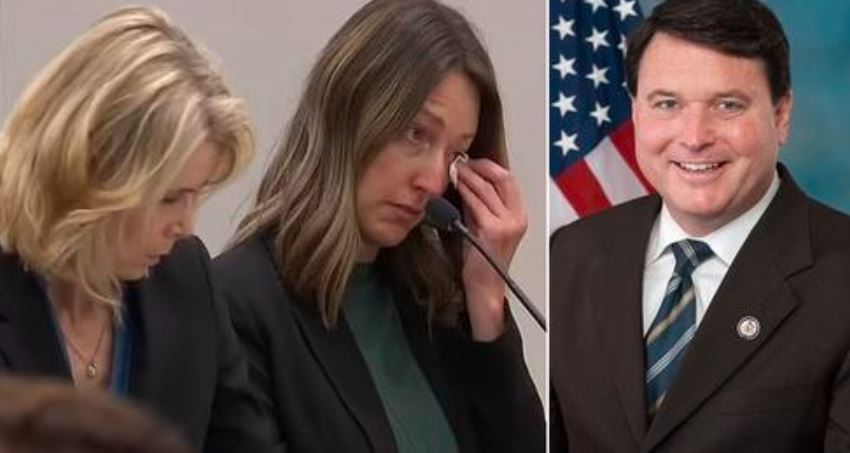After the repeal of Roe v. Wade, an Indiana doctor has been fined $3,000 for performing an abortion on a 10-year-old Ohio girl who had been raped and was unable to access the procedure in her state. Dr. Caitlin Bernard was not just fine for the abortion but also for publicly discussing the case in the media. The case gained huge attention after the Supreme Court’s decision on June 24, 2022, to overturn the law that had been in effect for 50 years.
Particularly, the state’s Republican deputy attorney general accused the Indiana doctor of promoting her agenda in a bold manner.

Ohio had implemented a near-total abortion ban, which came into effect immediately, forbidding all abortions after the sixth week of pregnancy, a stage when many people are unaware of their pregnancy. Conversely, Indiana permits abortions until 21 weeks and six days, although a recently passed law that completely prohibits abortion in the state is presently facing legal challenges and is not enforceable at the moment.
However, Dr. Bernard experienced emotional relief as she was informed her medical license would not be revoked.

She has been found to have violated privacy laws by sharing details of the girl’s treatment with a newspaper reporter, according to the state Medical Licensing Board. Although, the board dismissed allegations from Indiana’s Republican attorney general that Bernard failed to report the child abuse to the appropriate authorities. Instead of suspending her license, the board has opted to fine her $3,000 for the violations and issued a letter of reprimand.
At the court proceedings, Dr. Bernard consistently defended her actions, asserting that she adhered to Indiana’s reporting requirements and followed the hospital’s policy by informing hospital social workers about child abuse.

She also emphasized that the girl’s rape was already under investigation by Ohio authorities. Bernard’s legal team also maintained she did not disclose any information that would breach privacy laws or compromise the girl’s identity. The case gained national attention after The Indianapolis Star featured it in an article on July 1, following the Supreme Court’s decision to overturn Roe v. Wade the previous summer.

Some news outlets and Republican politicians had mistakenly cast doubt on Bernard’s account until a 27-year-old man was charged with the rape in Columbus, Ohio. President Joe Biden also expressed his outrage over the case during a White House event. Board President Dr. John Strobel said he believed Bernard went too far in telling a reporter about the girl’s pending abortion and that physicians need to be careful about observing patient privacy.
‘I don’t think she expected this to go viral,’ Strobel said of Bernard. ‘I don’t think she expected this attention to be brought to this patient. It did. It happened.’ Bernard’s lawyer, Alice Morical, told the board the doctor reported child abuse of patients many times a year and that a hospital social worker confirmed with Ohio child protection staffers that it was safe for the girl to leave with her mother. ‘Dr Bernard could not have anticipated the atypical and intense scrutiny that this story received,’ Morical said.
Morical added, ‘She did not expect that politicians would say that she made the story up.’ Indiana Attorney General Todd Rokita’s complaint urged the licensing board to impose ‘appropriate disciplinary action’, but did not specify a requested penalty. Last summer, Todd, who is anti-abortion told Fox News he would investigate Bernard’s actions and branded her an ‘abortion activist acting as a doctor.’ Deputy Attorney General Cory Voight also argued the board has to address what he called an ‘egregious violation’ of patient privacy.

Voight also pointed out Bernard’s failure to notify Indiana’s Department of Child Services and police about the rape and said, ‘There’s been no case like this before the board. No physician has been as brazen in pursuit of their own agenda.’ Voight then asked Bernard why she discussed the Ohio girl’s case with the reporter and later in other news media interviews rather than using a hypothetical situation.
In response, Bernard said, ‘I think that it’s incredibly important for people to understand the real-world impacts of the laws of this country about abortion. I think it’s important for people to know what patients will have to go through because of legislation that is being passed, and a hypothetical does not make that impact.’ Rokita’s office kept up a running commentary on its official Twitter during the court hearing.

A post on Twitter reads, ‘When Bernard talked about the high priority she puts on legislation and speaking to the public, she did so at the expense of her own patient. This shows where her priorities are as an activist rather than a doctor.’ But then Bernard objected to Voight, saying her choice to discuss the case led to the misconduct allegations. ‘I think if the attorney general, Todd Rokita, had not chosen to make this his political stunt we wouldn’t be here today,’ Bernard argued.
Lawyers for the attorney general’s office repeatedly raised questions about whether the policy of Bernard’s employer, Indiana University Health, to report suspected child abuse to authorities in the state where the abuse occurred complied with Indiana law. Also at the proceedings, representatives from IU Health, the largest hospital system in Indiana, testified the Indiana Department of Child Services had never raised any objections to the hospital’s policy in the past.

The Indiana board overseeing the case, consisting of five doctors and one attorney appointed or reappointed by Republican Governor Eric Holcomb, had significant discretion granted by state law. This authority enabled them to issue reprimand letters, suspend, revoke, or place a doctor’s license on probation as deemed appropriate. Nonetheless, Rotika tweeted after the hearing, writing, ‘Thanks to my amazing team.’

Rotika added in his tweet, ‘the abortion doctor got the maximum civil fine for violating three counts of privacy laws and received a public reprimand to go into a national database.’ After being in effect for about two months, the near-ban on abortion in Ohio was temporarily suspended pending the resolution of a lawsuit challenging its legality. In response to the notable case of the Ohio girl, Indiana’s Republican-dominated Legislature passed a statewide abortion ban.

Abortions are currently allowed in Indiana while the ban’s constitutionality is being deliberated by the Indiana Supreme Court. Notably, Dr. Bernard made an unsuccessful attempt to halt an investigation by Rokita in the previous year. An Indianapolis judge recognized that Rokita’s public comments about investigating the doctor made prior to filing the medical licensing complaint against her, violated state confidentiality laws. On the other hand, Since the decision to overturn Roe v. Wade, a total of 24 states have enacted or attempted to enact restrictions on abortion.


